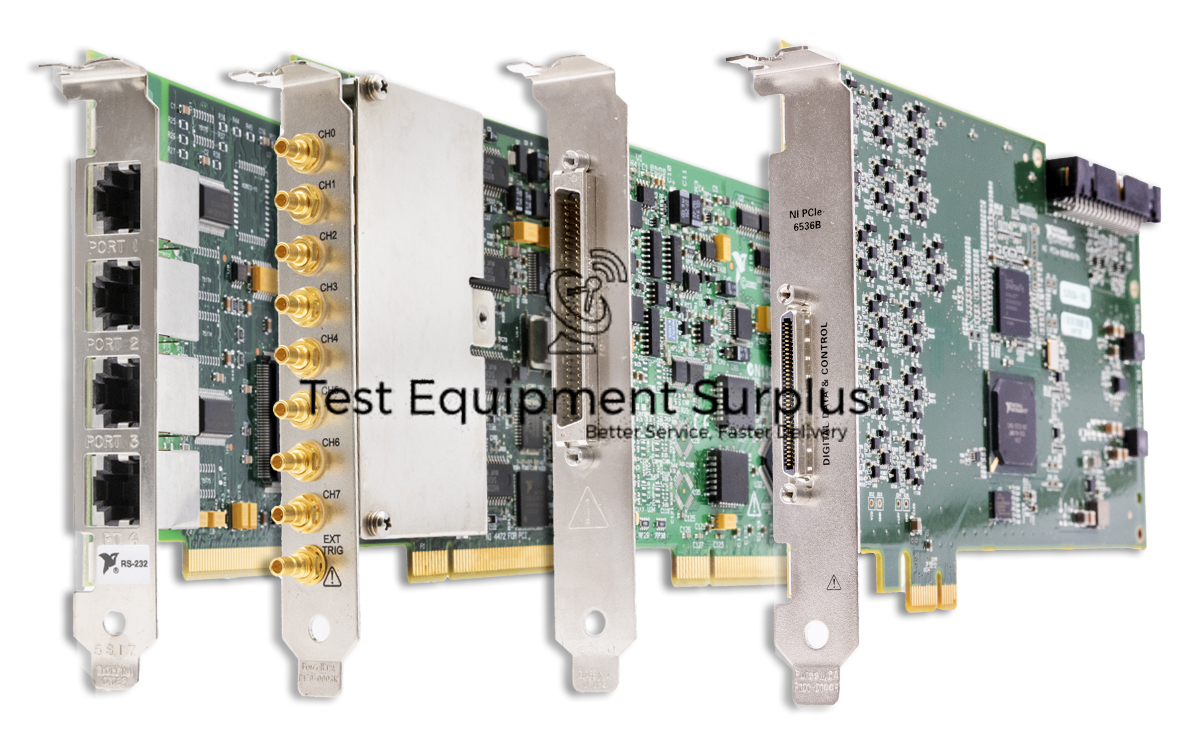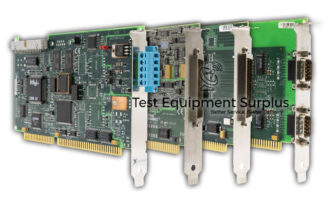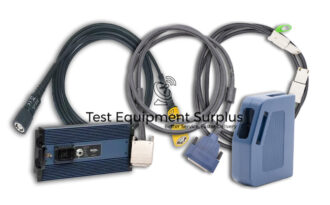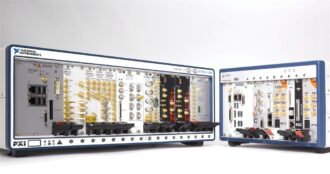Description
The National Instruments PCI-8430/16 Serial Interface Device, with the part number 779645-01, is designed to facilitate high-speed communication through a 16-port serial interface supporting the RS232 standard. Capable of baud rates up to 1,000 kb/s, this device ensures precise data exchange with an accuracy within 1% for non-standard baud rates and an even higher precision of 0.01% for standard baud rates.
Empowered by the latest DMA engine, it allows for significant throughput while minimizing CPU usage, making it compatible with both hyper-threading and multicore processors. The 128 Bytes FIFO size is ample for most applications, and the device is equipped with 68-pin VHDCI front panel connectors for robust physical connections.
With a modest power requirement of 935 mA typically and 1.4 A maximum at +5 VDC, the PCI-8430/16 is both energy-efficient and powerful. It is a lightweight device, weighing in at just 0.22 lb, and has compact physical dimensions of 4.2 x 6.9 inches. Designed to operate within a temperature range of 0 to 55 °C and to be stored in temperatures ranging from –20 to 70 °C, it is a durable and reliable solution for various industrial environments.
| Specification | Detail |
|---|---|
| Product Name | National Instruments PCI-8430/16 Serial Interface Device |
| Part Number | 779645-01 |
| Number of Ports | 16-port Serial Interface |
| Communication Standard | RS232 |
| Baud Rates | Up to 1,000 kb/s |
| Baud Rate Precision | Within 1% for non-standard baud rates; 0.01% for standard baud rates |
| DMA Engine | Latest version for high throughput with minimal CPU usage |
| Processor Compatibility | Hyper-threading and multicore processors |
| FIFO Size | 128 Bytes |
| Connectors | 68-pin VHDCI front panel connectors |
| Power Requirement | 935 mA typical, 1.4 A maximum at +5 VDC |
| Weight | 0.22 lb |
| Physical Dimensions | 4.2 x 6.9 in |
| Operating Temperature Range | 0 to 55 °C |
| Storage Temperature Range | –20 to 70 °C |
Question 1: What is the precision of the National Instruments PCI-8430/16 Serial Interface Device’s data exchange for non-standard and standard baud rates?
Answer 1: The National Instruments PCI-8430/16 Serial Interface Device is designed to be compatible with hyper-threading and multicore processors, and it uses 68-pin VHDCI front panel connectors.
Question 2: What is the accuracy of the National Instruments PCI-8430/16 Serial Interface Device when operating with non-standard and standard baud rates, and what are its power requirements?
Answer 2: The National Instruments PCI-8430/16 Serial Interface Device offers a precision of 0.01% for standard baud rates and 1% for non-standard baud rates; it features power efficiency with a typical consumption of 935 mA and a maximum of 1.4 A at +5 VDC, compatibility with hyper-threading and multicore processors due to the latest DMA engine, and physical durability with a robust design that can operate between 0 to 55 °C and be stored from
Question 3: What is the baud rate accuracy of the National Instruments PCI-8430/16 Serial Interface Device for non-standard and standard baud rates?
Answer 3: The National Instruments PCI-8430/16 Serial Interface Device offers a precision of 1% for non-standard baud rates and an even higher precision of 0.01% for standard baud rates.
Question 4: What level of precision does the National Instruments PCI-8430/16 Serial Interface Device offer for standard and non-standard baud rates, and what are its key features in terms of power efficiency, compatibility, and physical durability?
Answer 4: The National Instruments PCI-8430/16 Serial Interface Device offers a precision of 1% for non-standard baud rates and an enhanced accuracy of 0.01% for standard baud rates, with power requirements of typically 935 mA and a maximum of 1.4 A at +5 VDC.
Question 5: What type of processors is the National Instruments PCI-8430/16 Serial Interface Device designed to be compatible with, and what front panel connector type does it use?
Answer 5: The National Instruments PCI-8430/16 Serial Interface Device offers a baud rate accuracy within 1% for non-standard baud rates and an even higher precision of 0.01% for standard baud rates.




